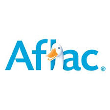10 EEOC Tips for your Small Business
The (EEOC) is an independent federal agency created by Congress in 1964 to eradicate discrimination in employment. The Commission enforces various statutes that prohibit employment discrimination on the basis of race, color, sex, national origin, religion, retaliation, age, and disability or protected veteran status.
(EEOC) is an independent federal agency created by Congress in 1964 to eradicate discrimination in employment. The Commission enforces various statutes that prohibit employment discrimination on the basis of race, color, sex, national origin, religion, retaliation, age, and disability or protected veteran status.
The EEOC has the authority to investigate charges of discrimination filed against employers who have a statutory minimum number of employees. HR can help avoid costly penalties by following the tips published by the EEOC.
- Look at the facts, not the faces. Race, color, religion, sex(including pregnancy, sexual orientation or gender identity), national origin, disability, age (40 or older) or genetic information (including family medical history) should not be a factor when you hire, fire, promote, pay, train, discipline or make other work-related decisions.
- Provide reasonable accommodations to applicants or employees who need them for medical or religious reasons, if required by law*.
- Develop a strong anti-discrimination policy before discrimination becomes a problem.
- Ensure that employees understand their rights and responsibilities at work.
- Be alert to potential harassment or discrimination.Stop, address and prevent harassment and discrimination.
- Ensure that employees are not punished for reporting discrimination, participating in a discrimination investigation or lawsuit, or opposing discrimination.
- Post an EEO poster at your business.
- Keep employment records as required by law.
- File an EEO-1 Report if you have 100 or more employees. Some federal contractors with at least 50 employees must also file this report.
- Contact the EEOC to request assistance, information or training.
* Federal, state and local laws may prohibit additional types of discrimination and/or require you to provide reasonable accommodations for other reasons. Federal, state and local government websites may have additional information about these laws.
Source: EEOC

















